Part II: International and Domestic Legal Instruments on the Liability of the Parties
This article will explore the liability of the following parties to determine what are the legal implications of the incident.
-
A) The shipowner and operator (X-Press Feeders and Master of the Ship)
-
B) Flag state
-
C) The Charterer (Shipper) and The Packaging company
-
D) Port state
A. Ship Owner and Operator ( X-Press Feeders) and Master of the Ship
-
Due Diligence of the Captain – s 23, Marine Pollution Prevention Act (MPPA) 2008
Every ship that enters Sri Lankan waters has to be equipped to prevent discharge of harmful substances. Though the vessel states that it took precautionary steps to contain the fire, it is questionable whether the steps were adequate. It is alleged that the nitric acid leak had been known to the crew since 11th of May, 2021.
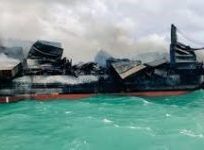
Image Credits: News Radio
-
Documentation – s 22, MPPA 2008
Every ship that enters SL waters has to have a record of its cargo. It shall be readily available for inspection by the Marine Environment Protection Authority (MEPA). Discharge of pollutants have to be mentioned per s 22(6). It is questionable whether Sri Lanka had access to such documentation as SL first tried to douse the fire using water. As Professor Pradeep Jayaweera has explained, a fire of this nature is inappropriate to be doused by water. If the leak of acid has not been informed to Sri Lanka, the Master has acted in bad faith, prejudicing the interest of Sri Lanka as a Port State.
-
Sri Lanka Ports Authority Act (SLPA Act), No. 51 of 1979 as amended
-
s 80 – The Master or the Owner of every importing vessel or his agent shall sign and leave at the office of SLPA within 24 hours after arrival of such vessel in the Port, a full and accurate list of goods containing particulars as to gross weight, measurements, marks, numbers and contents of each package. Not doing so is an offence. However, it is questionable whether X-Press Pearl filed such a list at the SLPA.
-
s 81 – Every vessel shall be equipped to enable her to be removed with safety whenever SLPA decides as necessary. X-Press Pearl was ordered to move out of Sri Lankan waters on 22nd of May, 2021. But did it move is a question.
-
-
For the Pollution Ensued
-
Civil Liability –s 34, MPPA 2008 holds the owner or operator of the ship liable for damage caused by discharge or escape of harmful substances within a maritime zone of SL. Costs incurred for preventative measures can be reimbursed.
-
Criminal Liability – s 26 (a), MPPA 2008 holds owner, operator, master or the agent of the ship liable for any discharge of harmful substances from a ship into a maritime or coastal zone or fore-shore of SL.
-
The vessel is fully covered under internationally recognized P&I insurance and Hull and Machinery insurance according to X-Press Feeders. It would be responsible to pay compensation to Sri Lanka for the damage caused.
-
B. Flag State – Singapore
The Flag State is bound by International Conventions and other instruments governing carriage of dangerous cargo.
-
United Nations Convention on the Law of the Sea (UNCLOS) 1982
Sri Lanka and Singapore are parties to UNCLOS 1982 since both States ratified it in 1994. Few provisions under Part II and XII need to be mentioned.
-
Article 21 -Laws and regulations of the coastal state relating to innocent passage – Coastal state to adopt laws and regulations in conformity with the international law related to innocent passage and territorial sea, regarding: inter alia conservation of living resources of the sea, preservation of the environment of the coastal State and the prevention, reduction and control of pollution.
-
Article 24- Duties of the coastal States – The coastal State shall not hamper the innocent passage of foreign ships though the territorial sea except in accordance with the Convention. In this regard the States shall not impose any requirements on foreign ships which have a practical effect of denying innocent passage or discriminate in form or in fact against the shops of any state or against ships carrying cargoes.
-
Article 98- Duty to render assistance : Every state shall require the master of a ship flying its flag to render assistance to any persons requiring rescue and to ships after collision. Every coastal state shall promote the establishment, operation and maintenance of adequate and effective search and rescue services regarding safety at sea.
-
Article 192 – States have a general obligation to protect and preserve the marine environment.
o Article 194(3)(b)- State Parties have to take measures to deal with all sources of pollution in the marine environment. Regarding pollution from vessels: preventing accidents, dealing with emergencies, preventing intentional and unintentional discharges, regulating design, construction, equipment, operation and manning of vessels have to be taken measures for.
o Article 211 – It deals with Pollution from vessels. Duties of coastal state, state of registry and port state are laid down.
-
Article 217 – Enforcement, inspections of vessels by Flag States. However, in X-Press Pearl it is the cargo that allegedly caused the casualty. No issues of seaworthiness or cargo-worthiness of the ship are reported so far.
o Article 235 – States are responsible for fulfilment of their international obligation to protect and preserve marine environment. There is also an objective of assuring adequate and prompt compensation for all damage caused by pollution of marine environment, therefore States have to cooperate.
-
International Convention for the Prevention of Pollution from Ships (MARPOL) 1973 as amended.
Sri Lanka and Singapore are State Parties to the MARPOL Convention.
o Article 2 of MARPOL defines “Harmful Substance.” Accordingly, it means any substance which, if introduced into the sea, is liable to create hazards to human health, to harm living resources and marine life, to damage amenities or to interfere with other legitimate uses of the sea, and includes any substance subject to control by the present Convention.
o Simply, the ‘marine pollutants’ in the International Maritime Dangerous Goods (IMDG) code or that meet the criteria in the appendix of the Annex III are the ‘harmful substances.
The IMDG Code 1965 as amended:
-
‘Dangerous goods that are carried in packaged form, in solid form or in bulk are regulated by Part A of International Convention for the Safety of Life at Sea (SOLAS) 1974 Chapter VII: carriage of dangerous goods, also known as the IMDG code.
-
‘IMDG classes 1 to 9 have the potential to cause pollution to the marine environment, because they: – are hazardous to aquatic life (marine flora and fauna); – impair the taste of seafood; or – accumulate pollutants in aquatic organisms.
-
IMDG Code is a mandatory instrument under Chapter VII for Contracting Parties to SOLAS 1974.
-
Sri Lanka acceded to SOLAS 1974 in 1983 and Singapore acceded in 1981.
o MARPOL has five annexes in which detailed regulations are given with respect to the handling on board ships and the discharge into the sea of five main groups of harmful substances. With regard to X-Press Pearl, two annexures are important.
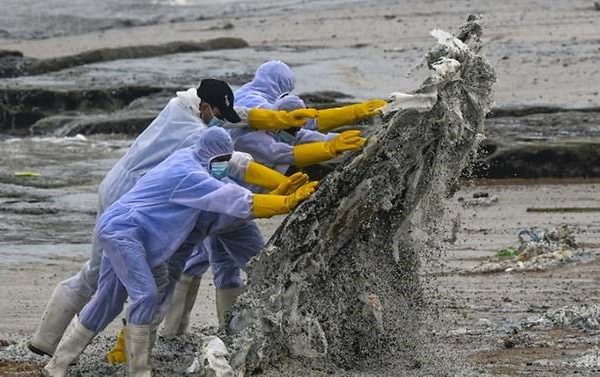
Image Credits: Ishara S. Kodikara and Channel News Asia
Annex II deals with noxious liquid substances carried in bulk.
o Annex III is about prevention of Pollution by Harmful Substances Carried by Sea in Packaged Form. It contains general requirements for the issuing of detailed standards on packing, marking, labelling, documentation, stowage, quantity limitations, exceptions and notifications for preventing pollution by harmful substances.
o Most Nitric Acid belongs in Class 08 (Corrosives) of the IMDG Code. Possible lack of due diligence to contain the nitric acid leak, leading to an explosion within the Territorial Sea of Sri Lanka is negligence on the part of the Master and the crew.
C. The Charterer (Shipper) and The Packaging Company
-
MARPOL 73/78
-
Regulation 2 of Annex III of MARPOL 73/78 specifically states that packages have to be adequate to minimize hazard to Marine Environment regarding its specific contents. As seen in the X-Press Pearl case, the packaging is allegedly faulty.
-
-
The Hague-Visby Rules (HVR) – The Hague Rules as amended by the Brussels Protocol 1968
o It needs to be clarified whether the ship is governed by HVR. However, Article IV, Rule 6 deals with dangerous cargo. It also states the properties of the Dangerous Goods as ‘inflammable, explosive or dangerous to the shipment.’ As the ship carried 25 tonnes of Nitric Acid, and when it poses a threat to the crew, vessel or to the other cargo, it can be classified as ‘dangerous cargo.’ As the crew and ship are aware of the acid consignments, the carrier, master or agent of the carrier would have been liable for the general average of the cargo.
o However, the issue here is regarding insufficient packaging. Then the charterer is responsible, not the carrier or the ship. From the charterer, the liability may flow to the packaging company.
-
X-Press Feeders’ CEO Shmuel Yoskovitz has stated thus:
-
We load containers that are signed and sealed and we don’t open them. We are dependent on the declaration and the professionality of our shippers that they will pack the containers correctly and that they will declare them correctly.
-
Other International Instruments
-
Is Basel Convention on the Control of Transboundary Movements of Hazardous Waste and Their Disposal 1989 applicable?
Basel Convention has the aim to reduce movement of hazardous waste between countries, especially from Highly Developed Countries to Low-Developed countries. So far, no report could be found alleging that the vessel contained consignments of waste.
-
The Rotterdam Convention on the Prior Informed Consent Procedure for Certain Hazardous Chemicals and Pesticides in International Trade 1998 could also be applicable regarding the permission granted for X-Press Pearl to enter Sri Lankan waters.
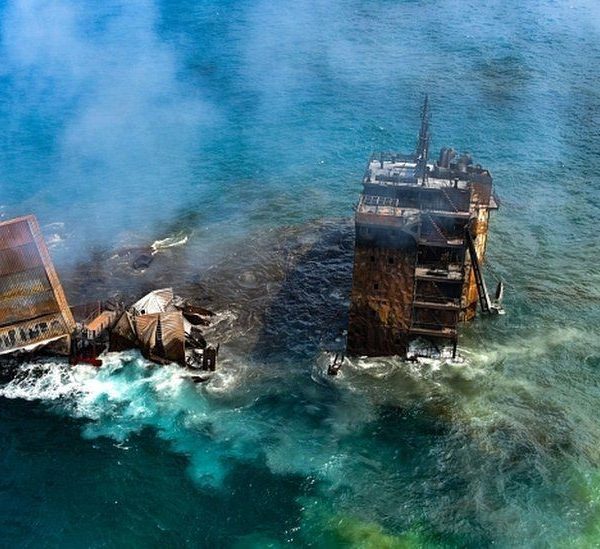
Image Credits: BBC News
D. Port State: Sri Lankan Government Authorities
Powers of Port State under Domestic Laws
-
Marine Pollution Prevention Act, No. 35 Of 2008 – Marine Environment Protection Authority (MEPA)
This is the apex body in charge of marine pollution prevention, control and management. It is a statutory body established by the MPPA Act, and has wide powers in marine pollution prevention, including the power to institute legal action imposing civil and criminal liability take preventive measures against marine pollution.
-
Criminal liability for discharges-S 3: “if any oil or other pollutant is discharged or escapes into Sri Lanka waters from any ship, or from any apparatus used for transferring oil or other pollutant to or from a ship (whether to or from a place on land or from another ship)…(a) where the discharge or escape is from a ship, the owner, operator, master or the agent of the ship shall be guilty of an offence and shall be liable on conviction to a fine not exceeding one million rupees.”.
This is subject to the defences set out in s 5. Accordingly the ship masters, owners will not be liable if it can be established that the discharge occurred as a result of actions to safeguard the ship, cargo or saving human life at sea and reasonable care has been taken in minimising the damage caused by such discharge; or that the oil or other pollutant escaped in consequence of damage to the ship and that all reasonable precautions were taken after the discovery to preventing and minimising the escape or; the discharge was due to a leakage which was not caused by lack of care and once discovered all reasonable precautions were taken.
-
Maritime Casualties – s 24, MPPA 2008 states steps to be taken when there is a maritime casualty, to prevent pollution. A ‘Maritime Casualty’ is defined as, “a collision of ships, standing or other incident of navigation or other occurrence on board a ship or external to it resulting in material damage or imminent threat of material damage to a ship or its cargo.” MEPA can order a ship to contain the pollutants, require the vessel to be moved and even destroy or sink it, subject to section 25, which states that measures taken under section 24 have to be proportionate to actual or threatened damage.
-
Effectively safeguarding maritime and coastal zones of Sri Lanka from pollution arising out of any ship based activity or shore based maritime related activity, conducting investigations and inquiries on any pollution arising out of any ship based activity or shore based maritime related activity are powers of MEPA (s 7, MPPA 2008) .
-
Powers of Inspection of any ship or cargo as required by the Authority (s 19, MPPA 2008).
-
It is lawful for the Authority to order the owner, operator, master or agent of any ship to take such steps as may be prescribed to prevent, mitigate, control and clean up any pollution (s 10, MPPA 2008).
-
Coast Conservation and Coastal Resource Management Act, No. 57 of 1981 as amended
-
Section 25- Director-General of Coast Conservation and Coastal Resource Management is empowered to give directions for prevention of intrusion of waste or foreign matter with adverse effects into the Coastal Zone and impacting quality of the water and order corrective measures to be taken by the polluter. He can also order to desist from continuing such activity within the coastal zone, if not within the Coastal Zone, he can request the appropriate local authority to take necessary measures to prevent such intrusion by foreign matter or activity that generates waste.
-
If the local authority does not have the capacity to abide by the directions of the Director-General, it shall notify him. Upon receiving the notice, the Director-General shall take such measures as may be necessary to prevent such intrusion or activity.
All the expenses incurred by him to remedy the situation shall be recovered from the polluter, as a debt due to the State.
Coastal Zone Management Plan (CZMP) 2018 for 2018-2023 Period
Under the Act, the Plan is established to inter alia improve status of the coastal environment and improve the living standards of coastal communities and resource users. As the fire on X-Press Pearl and its debris has caused a huge impact on the fisher community, and the community in the affected coastal line, action could be taken under this Act to safeguard the interests of coastal communities and related industries.
-
Department of Coast Guard Act, No. 41 of 2009
The Long Title of the Act states the Department of Coast Guard (DOCG) shall, inter alia provide assistance to ships which meet with distress at sea and to persons found aboard such ships, provide assistance in ensuring maritime traffic safety, protect the marine environment, prevent and combat maritime disasters.
-
Section 4 specifically states the duties and functions of the DOCG. Assisting in the preservation and protection of maritime and marine environment; assisting the relevant authorities in the implementation and monitoring of measures required for the prevention and control of marine pollution and other disasters which occur at sea; assisting in the conservation of marine species are within the scope of work that DOCG undertakes.
-
s 5 – The DOCG has the power to stop, enter, inspect any vessel and require any licence, permit or certificate to be produced. It can investigate any offence.
-
s 8 – A Coast Guard officer may direct the shipmaster or other person commanding a vessel to produce the ship’s official papers which are required to be kept aboard, ascertain details and question the crew as well.
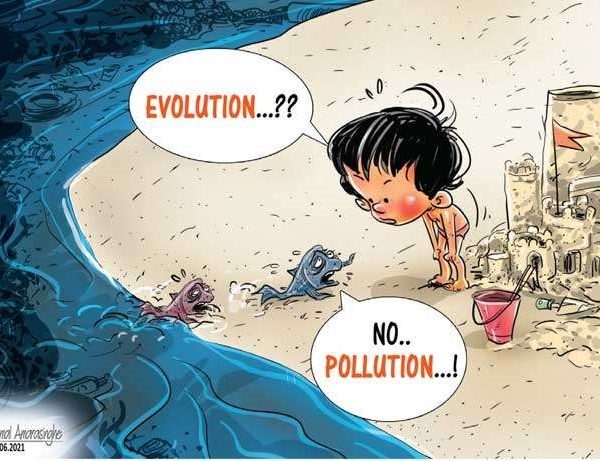
Image Credits: Namal Amarasinghe and Daily Mirror
-
-
Sri Lanka Ports Authority Act (SLPA Act), No. 51 of 1979 as amended
-
s 6 – Regulating and controlling the navigation within limits of, and approaches to specified ports is a duty upon SLPA.
-
s 7(q) – States that fire services both within a specified port and on high seas to extinguish fires on land, sea or afloat and preserving life and property have to be provided as deemed necessary by SLPA.
-
s 84A – Harbour Master may direct a vessel to be berthed or anchored and removal from berth or anchorage. The Harbour Master also regulates the movement of vessels within any specified port and the approaches to such a port.
-
s 84B – Where there is a fire on board a vessel, Harbour Master may board the vessel with assistance and give orders as he deems fit, to scuttle the vessel or to move the vessel to a place to prevent danger to other vessels and to protect life or property.
-
Powers of inspection under the Act are mentioned under s 44 and s 84C.
-
-
Given the complexity of the issues connected and lack of evidence as to the causes of this disaster, it is important to be aware of the limitations when making claims regarding liability of the parties. Also given that the issue occurred within the territorial waters of Sri Lanka firstly, domestic remedies ought to be sought in domestic courts, against the alleged violations of law. Even though lacking in many aspects on imposing liability there is a legal framework that applies within Sri Lanka that the State can resort to.
It is important that we look at this disaster and re-evaluate the domestic legal regime to ensure that we are in compliance with the international and regional treaties we ratify in order to achieve the benefit of such laws. Part III of this series will be looking at the general powers under international law and the way forward in addressing the issues that arise in the short term and long term as a result of this debacle.
[1] ‘Fire on X-Press Pearl vessel yet to be brought completely’ (Newsfirst, 29 May 2021) <https://www.newsfirst.lk/2021/05/29/fire-on-x-press-pearl-vessel-yet-to-be-brought-completely/> accessed 31 May 2021.
[2] Akshat Arora, ‘MARPOL Annex III and Amendment 37-14 to the IMDG code’ (2016) Standard Safety <https://www.standard-club.com/fileadmin/uploads/standardclub/Documents/Import/publications/standard-safety/split-articles/2016/2023666-marpol-annex-iii-and-amendment-37-14-to-the-imdg-code.pdf> accessed 31 May 2021.
[3] ibid.
[4] (n 9).
[5] International Maritime Organization, ‘International Convention for the Safety of Life at Sea (SOLAS), 1974’ (IMO Website, as updated) <https://www.imo.org/en/About/Conventions/Pages/International-Convention-for-the-Safety-of-Life-at-Sea-(SOLAS),-1974.aspx> accessed 03 June 2021.
[6] From <https://treaties.un.org/pages/showDetails.aspx?objid=08000002800ec37f> accessed 03 June 2021.
[7] IMDG Code accessed at United Nations Economic Commission for Europe Website <https://unece.org/DAM/trans/danger/publi/unrec/English/part3.pdf > on 31 May 2021.
[8] Sam Chambers, ‘X-Press Pearl was not allowed to offload leaking box in India and Qatar prior to Sri Lanka call’ (Splash 247, 26 May 2021) <https://splash247.com/x-press-pearl-was-denied-entry-in-india-and-qatar-before-catching-fire-off-colombo/> accessed 31 May 2021.
[9] Hague Visby Rules 1968, art IV, Rule 2 (n).
[10] ‘CEO of vessel operator apologises for impact of sunken container ship off Sri Lanka coast’ (Daily Mirror, 03 June 2021) <http://www.dailymirror.lk/breaking_news/CEO-of-vessel-operator-apologises-for-impact-of-sunken-container-ship-off-Sri-Lanka-coast/108-213375> accessed 04 June 2021.
[11] Food and Agriculture Organization, ‘Sri Lanka (National level)’ (FAOLEX Database, as updated) <http://www.fao.org/faolex/results/details/en/c/LEX-FAOC183110/> accessed 31 May 2021.
[12] MOU 1998, s 2. The content is available at <https://iea.uoregon.edu/MarineMammals/engine/Documents/2-1036-1064.html> accessed 01 June 2021. Hereafter referred to as MOU 1998.
[13] MOU 1998, s 3.8.1.
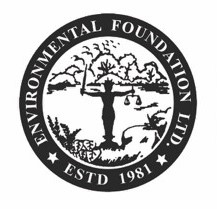
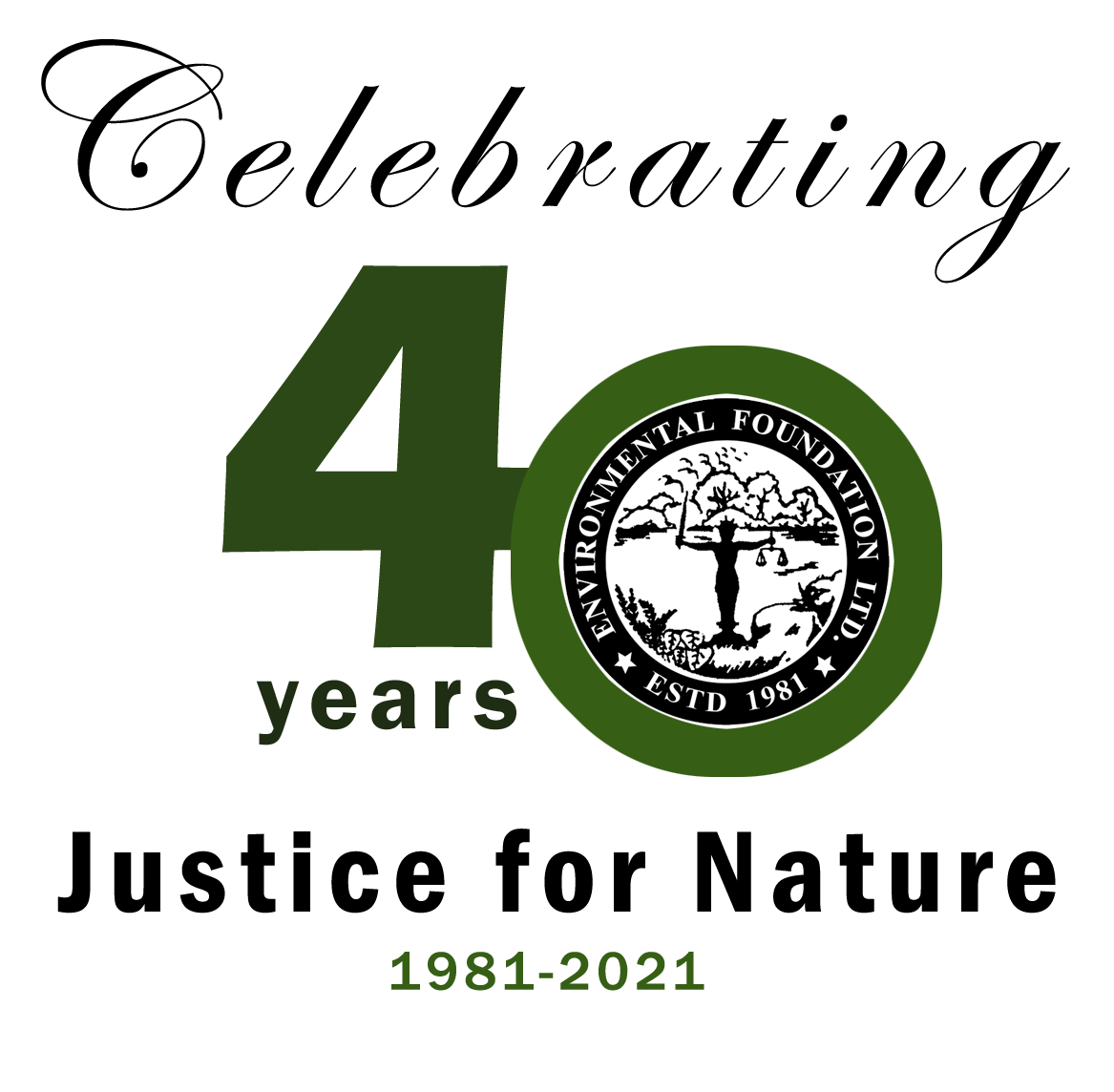


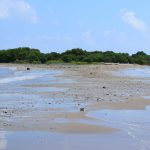

No comments yet.